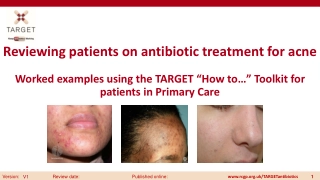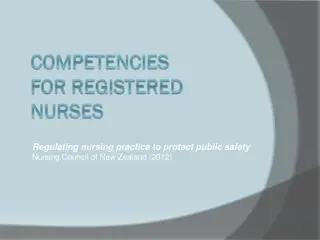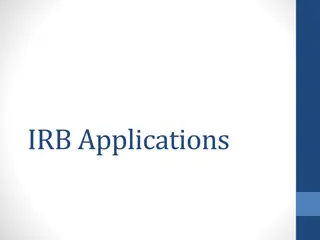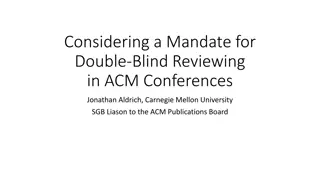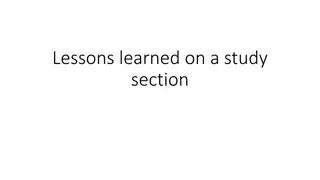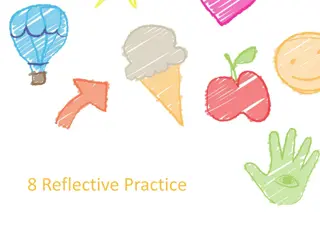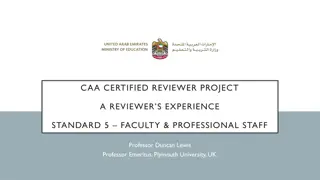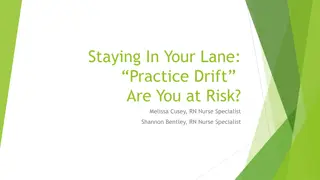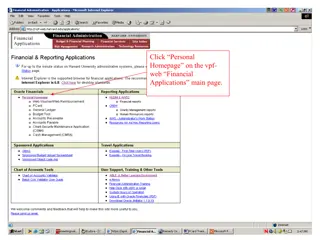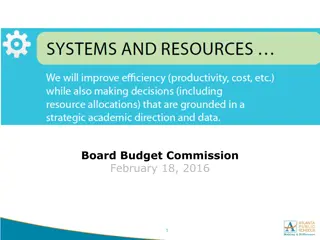
Protect Yourself Online: Internet Safety Tips and Facts
Stay safe online by learning about internet safety risks, such as identity theft and malware infections. Discover easy steps to protect your personal information and privacy while browsing the internet. Be informed and proactive to safeguard yourself from online threats.
Download Presentation

Please find below an Image/Link to download the presentation.
The content on the website is provided AS IS for your information and personal use only. It may not be sold, licensed, or shared on other websites without obtaining consent from the author. If you encounter any issues during the download, it is possible that the publisher has removed the file from their server.
You are allowed to download the files provided on this website for personal or commercial use, subject to the condition that they are used lawfully. All files are the property of their respective owners.
The content on the website is provided AS IS for your information and personal use only. It may not be sold, licensed, or shared on other websites without obtaining consent from the author.
E N D
Presentation Transcript
You use the internet every day, and nothing bad has happened so far. So, you must know all about internet safety, right? Wrong. Even experienced internet users unwittingly do things online that put them at risk. Internet-based crime can happen to anyone.
If youre not aware of internet safety, you might be at risk of Allowing unknown persons to access your personal data and passwords, which may enable them to commit identity theft Infecting your computer with a virus Being harassed or bullied online Revealing personal details about your location, financial situation, and identity that might allow someone to target you for a real world crime Being tricked into giving away money or personal information
Things you might not know about internet safety: Studies estimate that up to 48% of American computers are infected with malware, which is an intentionally malicious program or code. ! As many as 10 million Americans are affected by identity theft- one of the biggest dangers on the internet- every year. Only 38-48% of victims of identity theft learn that they re being victimized within four months of the theft beginning, meaning that by the time most people realize what s going on, major damage has already been done. Of the internet fraud cases reported to the FBI in 2009, only 38% of the victims knew the perpetrator s state of residence- making most wrongdoers very hard to track down.
Dont freak out! There are easy steps you can take to keep yourself safe online.
Identity theft and invasions of privacy can have very real consequences. Taking certain precautions and adopting safe habits can go a long way toward protecting you from personal harm.
Guard your personal information. Never respond to an email asking for any passwords or account numbers, even if they seem to come from a trusted source. Before revealing personal details like your full name or home address, ask yourself if it s really necessary to share that information. Use privacy filters and settings on social networking sites to limit the amount of information you share with strangers.
Browse cautiously. Before you enter a username and password into a site, double check the web address to make sure you re at the correct site and not an imitator. The most popular browsers offer tools and settings to help protect you from bad sites. Update your browser frequently and avoid sites it deems unsafe.
Download safely. Download only from trusted sites. Malware is often disguised as an innocuous program or file. Download from a site you know and trust, or use the search tool at download.cnet.com to search for downloads that have been verified as safe. download.cnet.com Save downloads instead of running them. This gives your computer more of a chance to verify that downloads are safe. Read the privacy and licensing agreement. It s a pain, we know, but if you don t read the fine print, you may be unintentionally agreeing to install spyware or adware on your computer.
Your identity and personal information isn t the only thing you re putting on the line when you don t pay attention to internet safety. Computers have the potential to be subject to a number of attacks, including viruses, spyware. worms, and Sound scary? Don t worry. You can keep your computer safe with a few simple precautions maintenance. and regular
What protection do I need? The best defense against internet threats is a good antivirus software. Antivirus software can protect you from infected email attachments, corrupt websites, internet worm viruses, spyware and more Here are the things to look for in an antivirus program: Antivirus - specifically protects against viruses Anti-spyware - protects against malicious software that may be gathering your information without your knowledge Firewall - screens out threats that try to reach your computer over the Internet
Things to consider before you buy: Investigate Your Computer Some computers come with security software, but you may need to subscribe to it after a trial period. Windows 7 and Mac Operating Systems already have built-in firewalls. Make sure to turn them on. Free vs. Paid Premium Software There are a number of free antivirus programs available that can offer an adequate amount of protection. However, many free antivirus programs often don t include technical support and may have limited functions and updating capabilities.
Not really. One of the great things about the internet constantly changing. This has its downsides, though with new content, applications, and technology come new viruses, scams, and risks. Luckily, there are an abundance of sites and programs that help keep you safe and up-to-date. is that it s ? ?? ? ? ?
More resources: A free internet safety tutorial presented by GCFLearnFree.org WiredSafety.org , an extensive global resource on internet safety StrongPasswordGenerator.com, a tool to help you create stronger passwords OnGuardOnline.gov, a comprehensive internet safety resource maintained by the Federal Trade Commission

